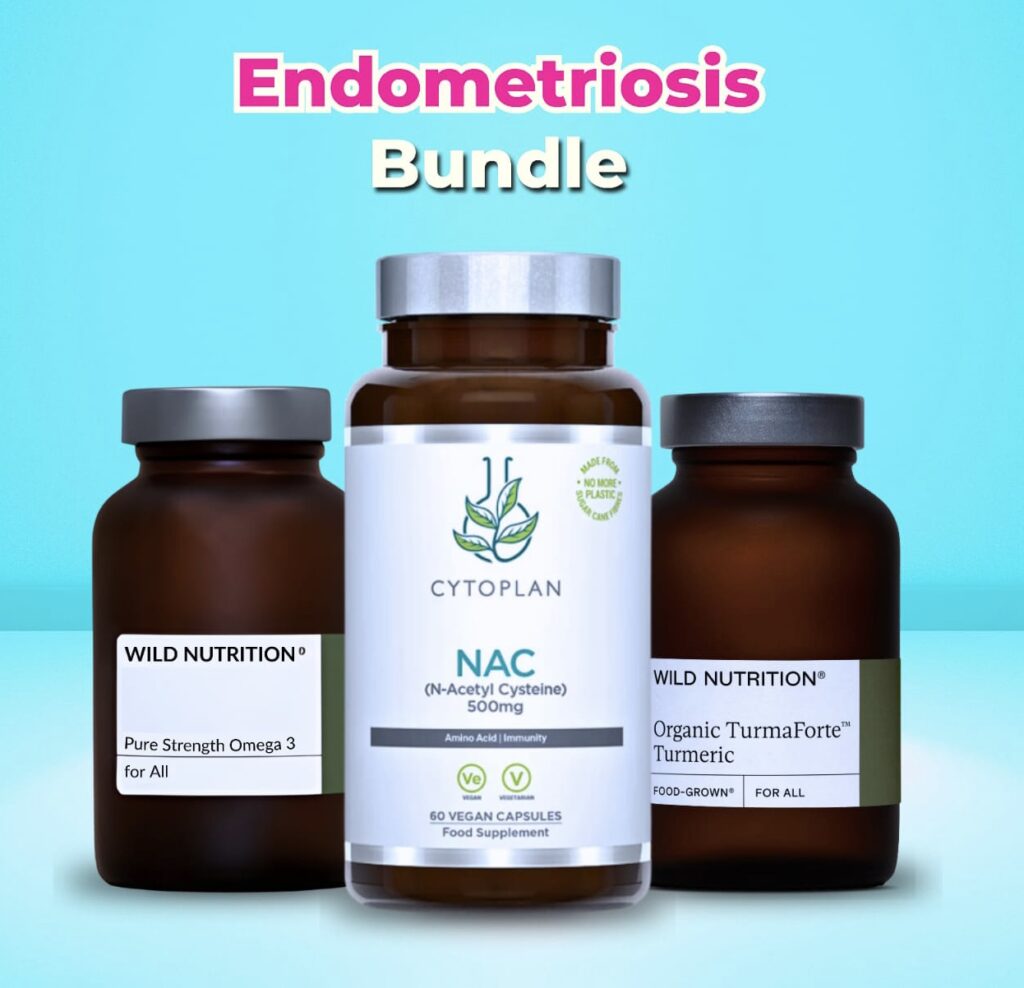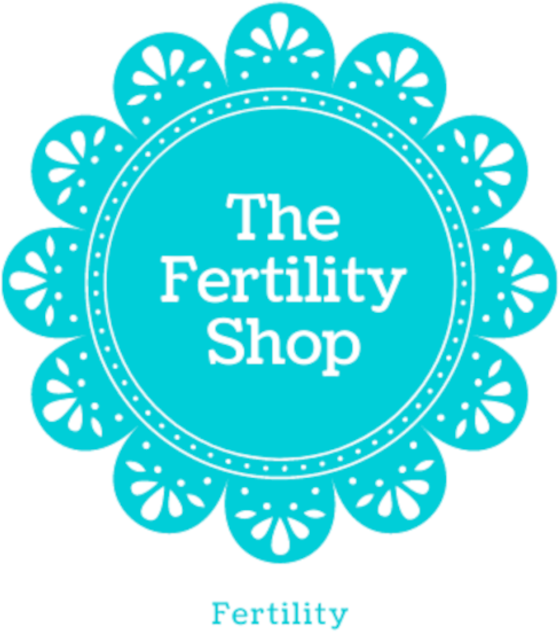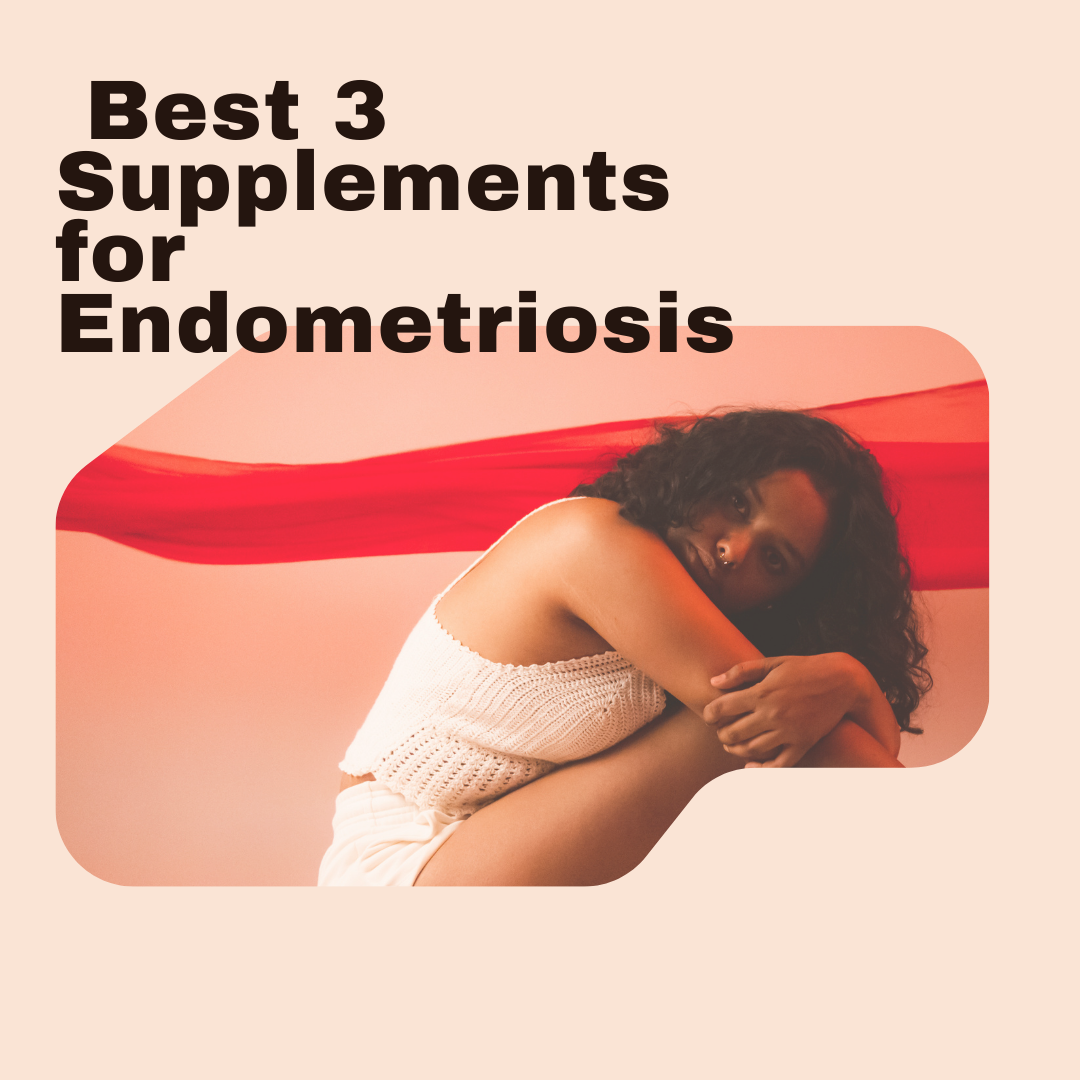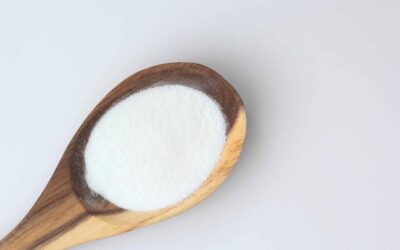March is Endometriosis Action Month.
Endometriosis, a chronic and often painful condition that affects millions of women worldwide, occurs when tissue similar to the lining inside the uterus, known as the endometrium, grows outside the uterus, where it doesn’t belong. This tissue can be found on the ovaries, fallopian tubes, the surface of the uterus, and other organs within the pelvis. Read more, “What is Endometriosis?”
We are often asked which supplements are the best for endometriosis.
Supplements can be used for their anti-inflammatory, anti-oxidant, anti-proliferative, and immune modulatory characteristics. There are many supplements that can help elevate endometriosis; ,these are just a few of them; vitamin D, zinc, magnesium, omega 3, propolis, quercetin, curcumin, nacetylcysteine, probiotics, resveratrol, alpha lipoic acid, vitamin C, vitamin E, selenium, and epigallocatechin-3-gallate.
These are our favourite ones
- Tumeric/Curcumin
- NAC (N-acetyl cysteine)
- Omega-3
Curcumin (Turmeric)
Curcumin is an active component in turmeric and has proven anti-inflammatory properties as well as other potentially health promoting characteristics, such as hormone-regulating abilities.
Research on curcumin for the treatment of endometriosis is limited, however, a 2013 study found that it can help reduce endometriosis epithelial cells (these are the cells that adhere to parts of the body outside of the uterus) by reducing excess oestrogen production (2)
A 2020 review published by the Journal of Molecular Science suggests that curcumin may provide relief from endometriosis-related inflammation and directly act on decreasing adhesion and invasion of new lesions, shrinking existing lesions, and stimulating angiogenesis (new blood vessel formation) in healthy cells (3). The authors do suggest that further research is needed to strengthen these findings.
NAC (N-acetyl cysteine)
NAC is an amino acid derivative. It is a precursor to glutathione production in the liver, which is one of the body’s most important antioxidants.
NAC restores the cellular ability to fight damage from oxidative stress, reduces inflammation, improves cellular detox, and helps regulate the gene that produces pro-inflammatory prostaglandins.
In a 2013 study of 92 women in Italy, 47 took NAC and 45 took a placebo. The study showed that NAC decreased abnormal cell growth, decreased inflammation, and reduced inflammatory genes. Also, 24 patients in the NAC group cancelled their scheduled laparoscopies due to a decrease or disappearance of endometriosis, improved pain reduction, or because they had become pregnant! In the other group, only one patient cancelled surgery (4).
Omega-3
Omega-3 fatty acids from fish oil contain DHA (docosahexaenoic acid) and EPA (eicosapentaenoic acid). This combination can reduce the production of molecules and substances linked to inflammation, such as inflammatory eicosanoids and cytokines.
A 2010 study published in Human Reproduction that took place over 12 years showed that women who consumed the highest amounts of omega-3 fatty acids were 22% less likely to be diagnosed with laparoscopically confirmed endometriosis when compared with women who had the lowest intake of omega-3 fatty acids. Conversely, those who consumed high amounts of trans-unsaturated fat were 48% more likely to be diagnosed with endometriosis (5)
Furthermore, some small European studies have shown that omega-3 fatty acids reduce the symptoms of dysmenorrhea (painful periods). Researchers believe that prostaglandins (PGs) play a pathogenic role in both endometriosis and dysmenorrhea. Omega-3 fatty acids from fish act as anti-inflammatory agents in endometriosis and dysmenorrhea by reducing the pro-inflammatory PGs derived from omega-6 fatty acids (processed meat and red meat) and the associated symptoms of endometriosis and dysmenorrhea.
We now have the Endometriosis Bundle available, or each item can be purchased separately.
Wild Nutrition: Pure Strength Omega 3
NAC (N-Acetyl Cysteine) Antioxidant for Fertility and Pregnancy
Food-Grown® Organic Turmaforte™ Turmeric

Get The Complete Bundle Now!!!
References






0 Comments